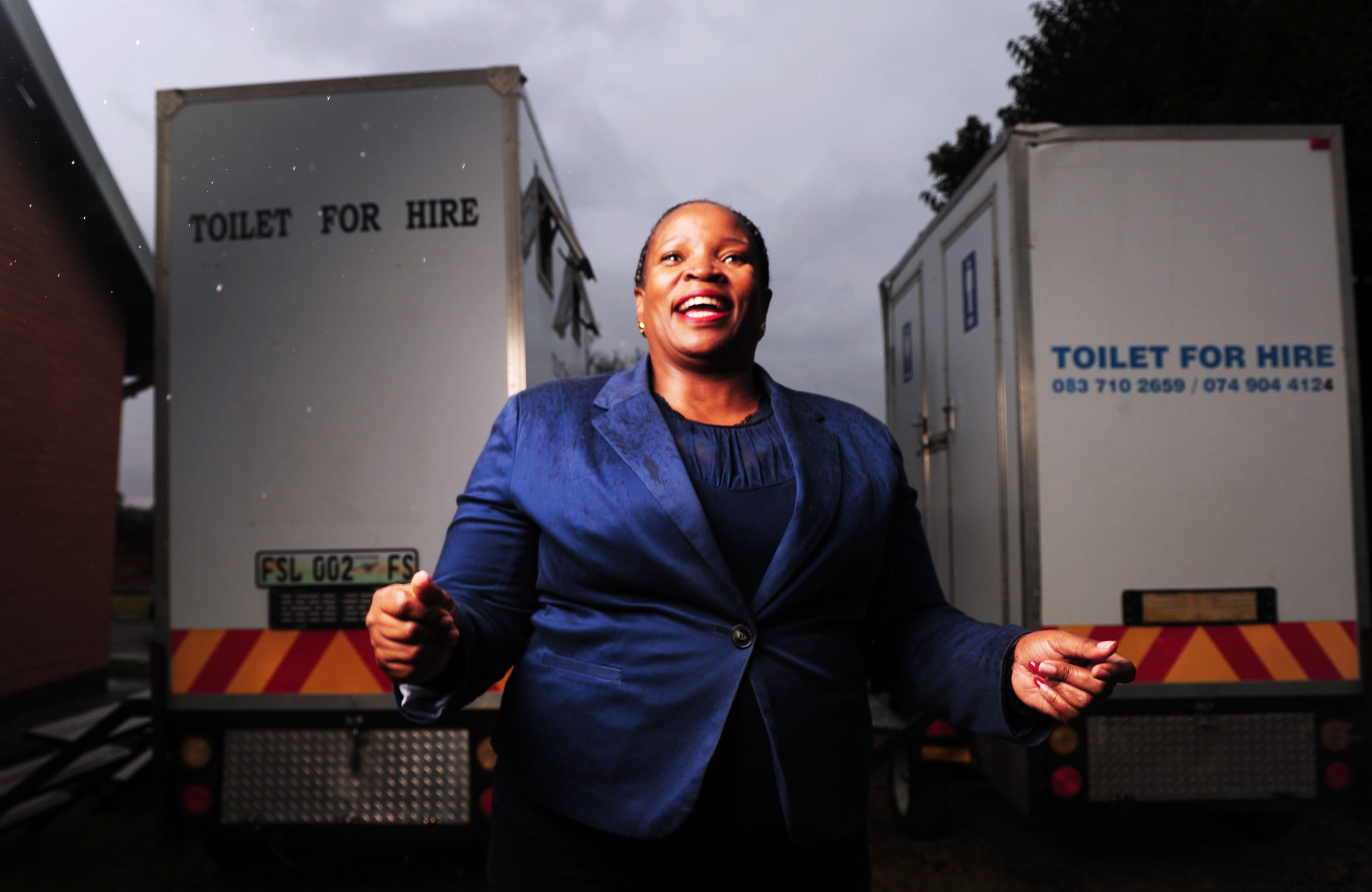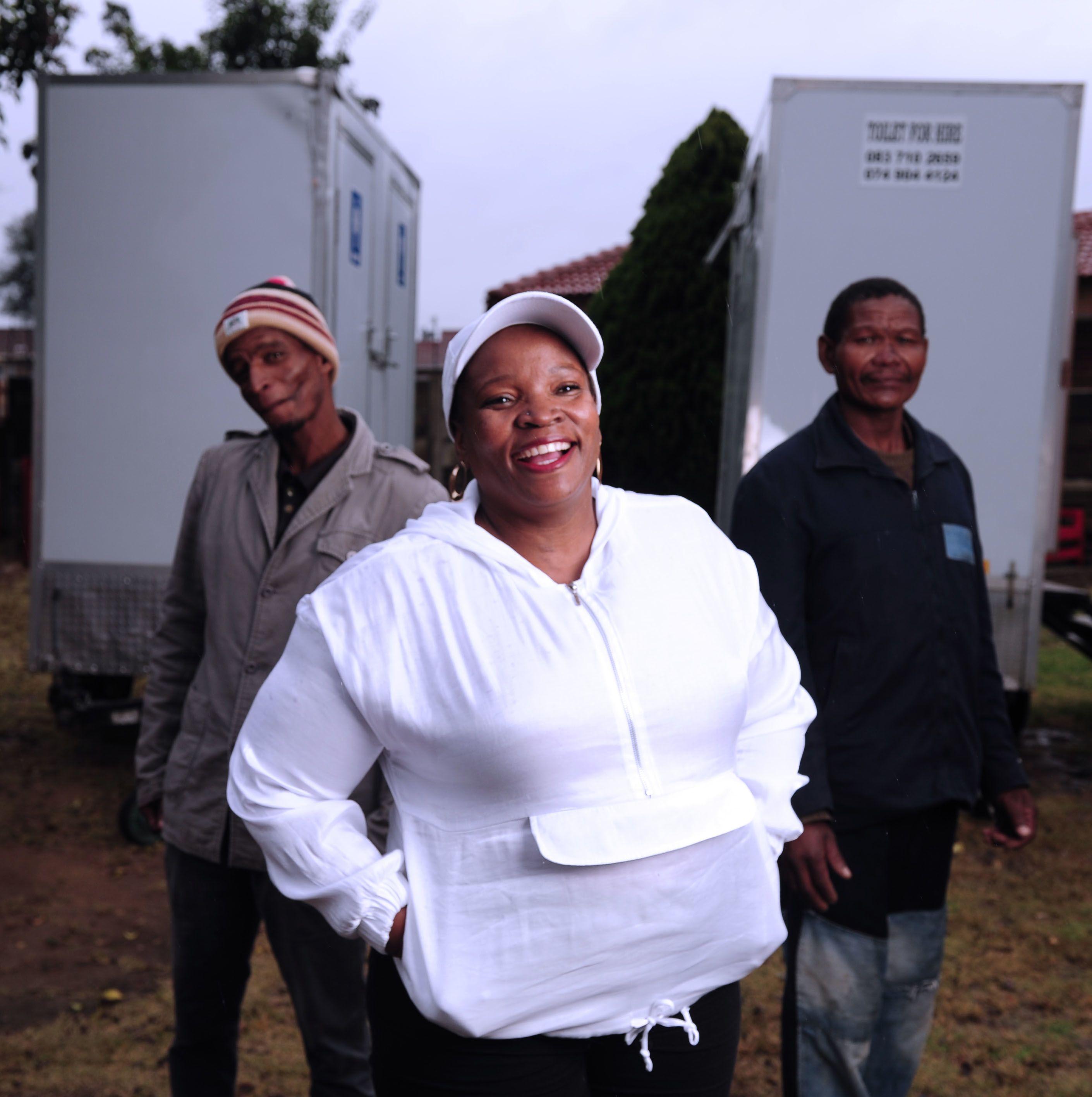When to use debt to expand your business
In this week’s chapter of the Absa/City Press Money Makeover, Maya Fisher-French explores the benefits of taking on good debt, backed by a solid cash flow analysis, to grow your business

Motsei joined the Money Makeover Challenge to receive guidance on expanding her toilet hire business.
“The business is doing well so far, but I believe we can grow it further and turn it into a great business empire, create more jobs and become a go-to ablution facility in the future.”
Motsei has no debt and, while she would like to remain debt-free, there is such a thing as “good debt”. Sometimes you need to consider borrowing money to expand, but only if the business can support the repayments.
Absa financial adviser Quentin Gibbens explains that, while Motsei is making sufficient income to cover her costs and pay herself a salary, there is not sufficient cash flow to expand the business at this stage.
Meanwhile, Motsei has identified two other opportunities to increase her income.
FRIDGE RENTALS: Many of the events Motsei supplies with toilets are weddings and funerals. Food is usually involved, and customers need to rent a fridge for several days. Currently, there is no one in the area offering fridge rentals.
STUDENT ACCOMMODATION: Motsei has a second property that is still being built. It is situated near an education institution and she could rent out rooms on the property to students.
The rental property would provide her with a passive income, while the purchase of an additional toilet and a fridge would help her to expand her hire business.
“This is how you create wealth, by means of multiple income streams,” explains Gibbens.
Motsei does not have the capital to purchase an additional toilet and fridge, or to complete the property. She estimates that she would need about R250 000 to fund these projects.
While she would prefer to expand without debt, it would take her a long time to build up these funds and she could lose potential business opportunities in the meantime.
“The only way to expand the business is to use other people’s or institutional money in a responsible manner. This means she is able to afford the credit that she applies for. Motsei can also apply for funding with the trade and industry department, but she might not receive sufficient funding in the timelines that she set,” says Gibbens.

Motsei has already proven her business concept and that the business earns sufficient income to cover her living expenses and pay her employees’ salaries. She has also been able to build up an emergency fund of R30 000.
Because she can prove her affordability, Gibbens has advised that Motsei consider taking out a mortgage on her primary residence to expand her business at a relatively low interest rate.
“Not only is a mortgage rate lower than other credit solutions such as personal loans, but bond repayments would be limited to the capital taken from the flexi bond. This means she will only repay the capital and interest that she uses. This gives her the flexibility to draw on the funds as she needs them. She is also not limited to the payment plan and can make ad hoc capital payments to reduce the debt at a faster rate and pay less interest.”

CASH FLOW ANALYSIS
Before taking on any debt, a business owner should always do a cash flow analysis. Motsei worked with Absa business banker Lerato Chabeli to analyse the potential income from various business opportunities.
By creating a business plan, Chabeli and Motsei could assess to what extent the borrowed capital would generate additional income. It is all about return on investment. If Motsei extended her credit by R250 000 to purchase an additional toilet and fridge, and complete her residence, she would increase her income by R38 000 a month, or R229 000 a year. This means that the investment would pay for itself in just over a year.
Motsei’s projected repayment over five years would be R5 374 a month. This would leave her with a net increase in income of R32 626.
Motsei could also chose to pay off the loan sooner by using the additional revenue. For example, if she increased her repayment to R20 000 a month, she could settle the mortgage within 14 months and be debt-free with a significantly improved revenue. Based on these revenue projections, it would be a good use of credit to grow her business and generate an income.
LIFE COVER
Motsei will apply for a life policy to cover the debt. The policy will be ceded to the home loan company by means of a security cession. A security cession is when a creditor becomes the owner of a policy for the period that a debtor still owes money. It should not be confused with an outright cession, where the ownership is permanent. Motsei will retain ownership of the policy once the debt is settled. Should a debtor die while still owing money, the creditor would only claim the outstanding amount. In this case, the balance would be paid to Motsei’s estate and distributed according to her last will and testament, which stipulates her wishes, and ensure business continuity.
RETIREMENT
Retirement planning is something many entrepreneurs ignore. It is important that you do not rely solely on the sale of your business to fund your retirement.
Motsei will be transferring her paid-up retirement annuity (RA) to an investment-linked unit trust RA, which gives an entrepreneur the flexibility to add to the investment on an ad hoc basis.
As Gibbens explains, Motsei will not be limited to monthly contributions and will not be penalised if she misses contributions because this is not linked to an insurance policy. Motsei can use this RA to offset any taxes that she may incur from her income, and it will help her to build a nest egg for her retirement.
If you really want to get your finances in order, you have to start tracking your spending. If you cannot commit to that, it is unlikely you will be able to reach your goals.
Follow the journey – and join in – @CPMoneyMakeover on Facebook and Twitter
Absa Enterprise Development assists SMEs with access to business development support, markets access and access to funding based on certain criteria’s being met. For further information on Absa Enterprise Development you can email ed@absa.africa
You can follow the story on social media #CPMoneyMakeover

Facebook: @CPMoneyMakeover

Twitter: @CPMoneyMakeover
Subscribe below for the Money Makeover Newsletter





